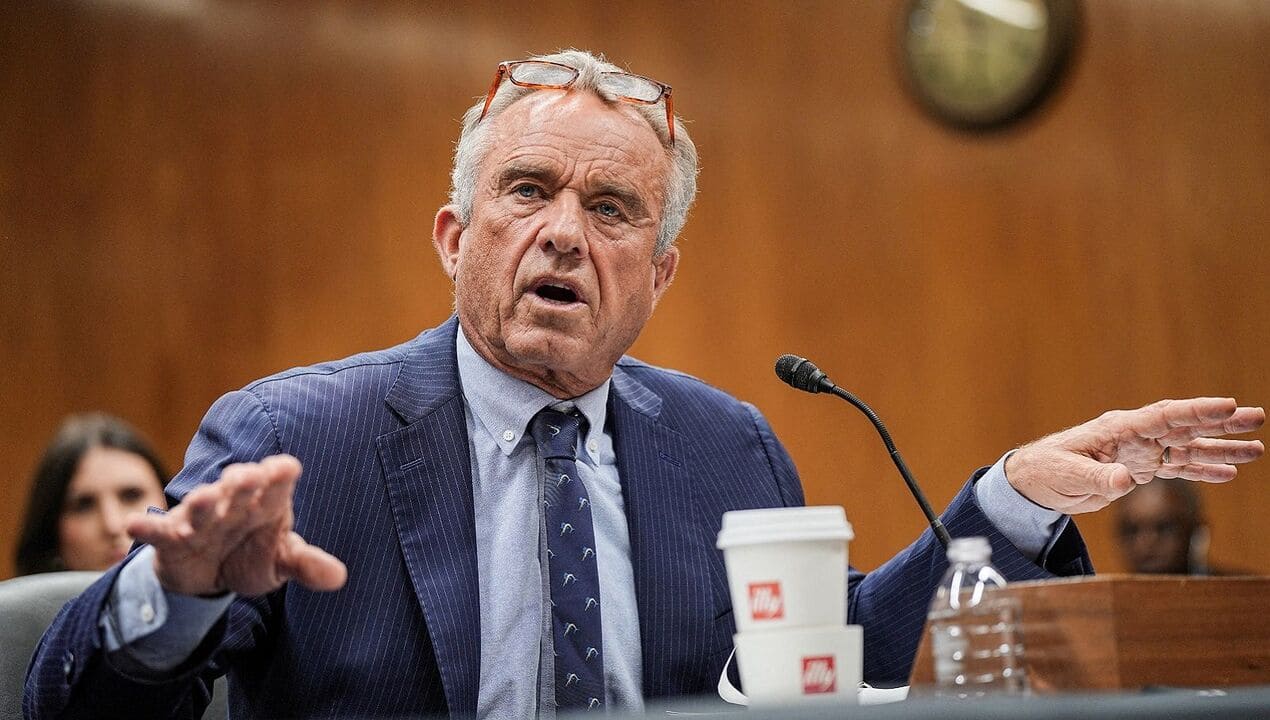
Independent Report – U.S. Health Secretary Robert F. Kennedy Jr.’s unexpected decision to remove the national vaccine advisory board has drawn attention to potential conflicts of interest among the group responsible for recommending vaccines to the American public. Kennedy claimed that the Advisory Committee on Immunization Practices (ACIP), which has 17 members, was “plagued with persistent conflicts of interest,” primarily because many experts had received significant funding from pharmaceutical companies. However, he did not provide specific examples of conflicts for any individual member or explain how these conflicts may have affected particular vaccine recommendations.
Members of the committee maintain that their work with the U.S. Centers for Disease Control and Prevention (CDC) is subject to strict scrutiny. They undergo thorough vetting regarding financial ties and are required to abstain from voting on any vaccine if a conflict of interest exists. This includes vaccines made by the same company or any competing product. The CDC’s official records show that at least one departing panel member recused herself from voting due to such conflicts.
Dr. Oliver Brooks, a dismissed board member and retired chief medical officer at Watts Healthcare in Los Angeles, disputed Kennedy’s claims. Brooks said there is no evidence that all 17 members of the advisory board have conflicts of interest. He warned that Kennedy’s decision could undermine public confidence both in the advisory process and in vaccines themselves.
A review by Reuters of the Open Payments database, which tracks industry payments to healthcare providers, revealed that six of the removed advisers received very small sums—$80 or less—from pharmaceutical companies between 2017 and 2023. Seven others earned between $4,000 and $55,000 over the same period for activities such as consulting, speaking, travel, or meals. Some had also been involved in industry-funded research projects worth millions of dollars.
Dr. Brooks received nearly $44,000 in payments from the pharmaceutical company Sanofi, mainly in 2017 and 2018, but none after 2020. He became a vaccine adviser in 2021 and reported no conflicts that would have prevented him from voting. Brooks emphasized that the panel’s primary goal is to prevent diseases that vaccines can stop. Sanofi declined to comment on the matter.
Not all vaccine advisers are covered by the Open Payments reporting system, as some are not health professionals subject to mandatory disclosure.
Also Read : Consumer Prices Rise Slightly Amid Tariff Concerns
Kennedy himself has faced scrutiny over his financial ties. During his confirmation hearing, he was questioned about potential conflicts due to his involvement in litigation against Merck over the Gardasil vaccine, which prevents certain cancers caused by human papillomavirus. Kennedy stated he would transfer this financial interest to his adult son to avoid conflicts.
Recently, Kennedy announced new members for the vaccine advisory panel. Some of these new appointees had received minor reimbursements for meals. While others had no reported payments or were outside the scope of the database.
In 2009, a federal inspector general criticized the CDC for weak enforcement of conflict-of-interest disclosures among its advisory panels. More recent research suggests that conflicts among vaccine board members have decreased over time. Dr. Genevieve Kanter, a public policy professor at the University of Southern California who studies government health adviser conflicts. Noted that in 2000, about 43% of panel members reported conflicts when voting on vaccines. In the last decade, this figure has dropped to around 5%.
Kanter emphasized the importance of transparency in how Kennedy’s new advisory board will be vetted. She warned against replacing one set of conflicts with another, particularly if new members have financial interests in alternative treatments to vaccines.
Members of ACIP must divest stock holdings in vaccine manufacturers and cannot engage in consulting or receive travel, food, or royalties from vaccine companies before joining the panel. Similar restrictions apply to their family members. However, advisers may continue to participate in vaccine clinical trials funded by industry. Such as research grants often support their salaries. They must file annual disclosures and recuse themselves from votes where conflicts arise.
The California Department of Public Health, whose immunization chief Dr. Robert Schechter was also removed by Kennedy. He stated that ACIP members are thoroughly screened for significant conflicts through a lengthy selection process.
One of the dismissed members, Dr. Bonnie Maldonado, a pediatric infectious diseases expert at Stanford University, has led numerous vaccine studies worldwide. Her research received $4.65 million from Pfizer between 2021 and 2023 for studies on vaccines against COVID-19, RSV, and other diseases. She also received payments from Pfizer. And also Merck but abstained from voting on COVID-19 vaccine recommendations in June 2024 due to a declared conflict. However, she participated in a related vote in October 2024.
Noel Brewer, a public health professor at the University of North Carolina and not a clinician. This is not included in the Open Payments system. In a 2017 publication, he disclosed receiving research grants from Merck, Pfizer, and GSK and serving on a paid advisory board for Merck. Though payment details were not specified.
The pharmaceutical companies involved did not immediately comment on these disclosures. This ongoing debate highlights the challenge of balancing expertise, transparency, and public trust in vaccine advisory processes.
Also Read : Apple EnergyKit: Powering Smarter Homes